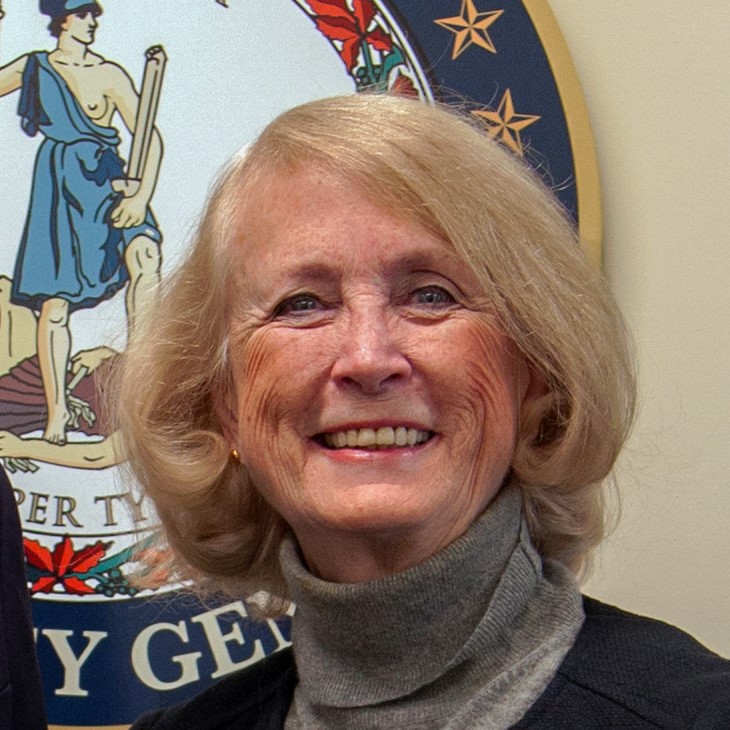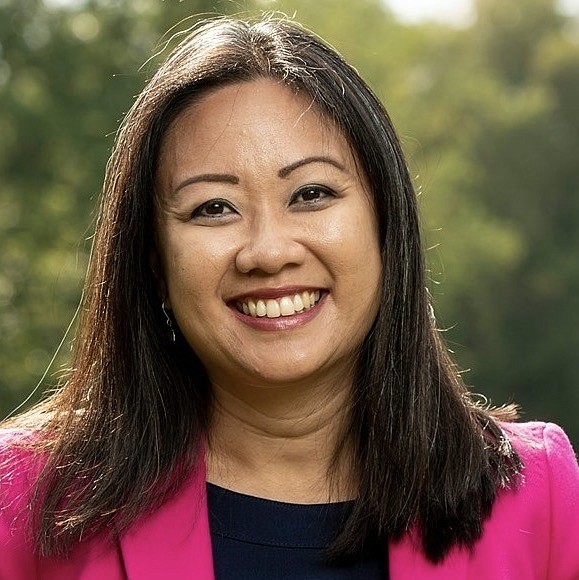Signed into law his year, new legislation tasks the Virginia’s commissioner and board of health with establishing new minimum standards for a myriad of health services for hospitals, nursing homes and certified nursing facilities in the Commonwealth. Of particular significance is a new requirement that each certified nursing facility receiving Medicaid reimbursements meet a minimum staffing hours standard.
Del. Vivian Watts (D-39th) has championed the issues of standards and adequate funding of nursing homes and assisted living facilities in Virginia for decades. She introduced her first related bill in 2002.
Watts, who describes herself as “a numbers person”, says she also enjoys being involved in human issues, and recognizes the need for tenacity amid the complexity of the state and federal elements that go into health services. She originally became involved 20 years ago over concern for a constituent’s aunt and then discovered the extent of the problem. Now she says she finds herself looking at contemporaries, who fear being “cast off because we’re old and who don’t want to be in a home without humane care.” She also appreciates the care industry’s concern about government oversight and recognizes that facilities need funding along with accountability. Watts is running unopposed in 2023, positioned to be the senior most Democrat in the House.
In 2021, the Joint Commission on Health Care, tasked with reviewing Virginia nursing home operations, reported significant workforce staffing challenges. The study reported that “one-fifth of Virginia’s nursing homes were not meeting expected staffing levels, and are disproportionately impacting low-income residents.” The report stated that, “All nursing homes in Virginia struggle to recruit and retain staff,” and nearly a quarter of facilities are not providing enough hours of direct care.
 Del Vivian Watts
Del Vivian Watts
The report also recognized that residents with behavioral health needs, which require increased staff time, are not adequately accounted for in Medicaid reimbursement rates, and such needs are increasing in nursing home resident populations. Behavioral health generally refers to mental health and substance use disorders, life stressors and crises, and stress-related physical symptoms.
Medicaid eligibility is determined by each state. About 1.7 million of Virginia’s 8.6 million population are enrolled in Medicaid; a program for low-income individuals. Virginia adopts a philosophy of aging in place. So, along with earning and asset limits, the commonwealth requires nursing care facility Medicaid applicants to have limitations in two major life activities, such as caring for oneself, performing manual tasks, seeing, walking, or breathing. Changes to the Affordable Care Act (ACA) gave states the opportunity to provide Medicaid coverage to people who earn up to 138 percent of the Federal Poverty Level (FPL); earnings defined as $20,120 per individual in 2023. In Virginia, 10.2 percent of the population lives in poverty. Virginia accepted the ACA coverage option in 2019 which increased the number of patients with health insurance, and covered by Medicaid. Although Black residents represent just under 16% of Virginia’s total senior population (age 65+), they make up 37% of Virginia’s Medicaid enrollees. In general, facilities with fewer staff also have a higher concentration of Medicaid recipients and Black residents, according to the commission.
 Sen George Barker
Sen George Barker
Virginia had been one of only 16 states without nursing home standards. “Low staffing increases the risk of low-quality care and more than 60 percent of facilities with low staffing receive poor health inspection ratings,” according to the commission.
As a result of these staffing shortages, 43% of Virginia’s nursing homes received a 1- or 2-star staffing rating in 2021 from the Centers for Medicare and Medicaid Services, indicating inadequate staffing. For comparison, across the U.S., 31% of nursing homes received 1 or 2 star staffing ratings. In a system of one to five stars, the 3-star score indicates that the facility is generally meeting but not exceeding expectations. A score of 1 or 2 stars generally means that the facility is performing below average and needs to improve.
Alarmingly, during the pandemic, COVID related deaths of Virginia nursing home residents were the second-highest in the nation in 2021, according to AARP, at 1.72 per 100 residents. (Sources: https://states.aarp.org/virginia/virginias-nursing-home-covid-19-death-rate-is-2nd-highest-in-the-nation)
These are some of the reasons that Watts co-sponsored a bill in the House to address these issues and the reason she says Virginia’s legislators made a determined bipartisan effort to assure that nursing home standards finally were addressed this year.
Another northern Virginia legislator, Senator George Barker (D-39th), Vice Chairman of the General Assembly’s Joint Committee on Health Care, sponsored the companion bill in the Senate. Under the new state code, certified nursing facilities must “provide at least 3.08 hours of case mix-adjusted total nurse staffing hours per resident per day on average” in accordance with the Department of Medical Assistance Services definitions for certified nursing assistants (CNA), licensed practical nurse (LP), and registered nurses (RN).
Virginia nursing home shortfalls vary greatly by type of staff, with the shortfall being greatest for CNA hours. Statewide, 59% of facilities reported CNA hours that were less than those expected by Medicare and Medicaid Services. Twenty-five percent reported fewer RN hours than expected; and 7% reported insufficient LPN hours.
A shortage of certified nursing assistants, who provide a majority of direct patient care, is the biggest challenge for Virginia’s nursing homes and their patients. The decreasing number of LPNs and CNAs in Virginia is contributing to the challenge of meeting industry recognized work hour standards. Exacerbated by COVID-19 staffing impacts, nursing facilities have long been considered “less desirable than other health care jobs due to available wages, benefits, training, and advancement opportunities, workplace culture, and leadership,” as noted by the Commission report.
Barker indicates that training to provide certified nurse staffing resources also is being addressed. There is a surplus of individuals who want to get into nursing as a career, but there are an insufficient number of nursing teachers at colleges. Schools with nursing programs are finding it difficult to attract and retain qualified teachers. Barker said the state budget includes funding for nursing faculty at schools in the state system. This likely will drive salary increases for nursing faculty at private schools as well. In addition,
As another approach to addressing nurse workforce shortages, Del. Kathy Tran (D-42nd) sponsored successful legislation to provide means for nurses trained in foreign certified programs to qualify in Virginia (HB2211).
“We face a critical nursing shortage in Virginia, but we have many immigrants and refugees living in the Commonwealth who were trained abroad as skilled nurses yet have been unable to practice their profession,” said Tran. “House Bill 2211 clarifies the process by which internationally trained nurses can get licensed in Virginia. It will help fill our nursing workforce needs while expanding opportunities for these new Americans to provide for their families. I’m proud House Bill 2211 passed unanimously and has been signed into law.”
The broad new care legislation provides for imposition of “administrative sanctions” for facilities not meeting standards. The specifics of those standards will be defined by January 2025, using the state’s administrative procedures process. Civil penalties in prior Code address violations which could lead to facility license suspension or receivership, while the new administrative sanctions play out over a longer annual review period over several years with a goal of bringing facilities into compliance. All three bills passed nearly unanimously in both houses of the General Assembly, tallying only two dissenting votes, for HB1446.
Staffing, standard definition and funding issues will be challenges; a reason the bill carries a delayed effective date of Jan. 1, 2025. Nor will the issues be solved without increased costs.
Hiring the necessary staff at nursing facilities to meet the new standards also is expected to increase costs for facilities.
For example, the Department of Veterans Services (DVS) currently operates two facilities in the commonwealth and “estimates the fiscal impact of meeting the staffing standards required by this bill to be at least $4.6 million annually,” to add 10 staff at the care centers in Richmond and Roanoke to provide about 78 hours of additional care each day.
